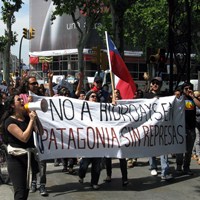
As South America’s middle class continues to grow, two important political priorities will increasingly clash: the need to meet growing energy demand, and an increasing sensitivity to the environment. Until these legitimate interests can be reconciled, however, the massive investment required to meet burgeoning energy demand across the region will be less likely to materialize. Brazil, whose Belo Monte Dam project is one of the most ambitious public works projects in the region, offers an excellent case in point. The project has been controversial since its inception in the 1970s, during the Brazilian dictatorship. Opponents successfully stalled the project due […]






